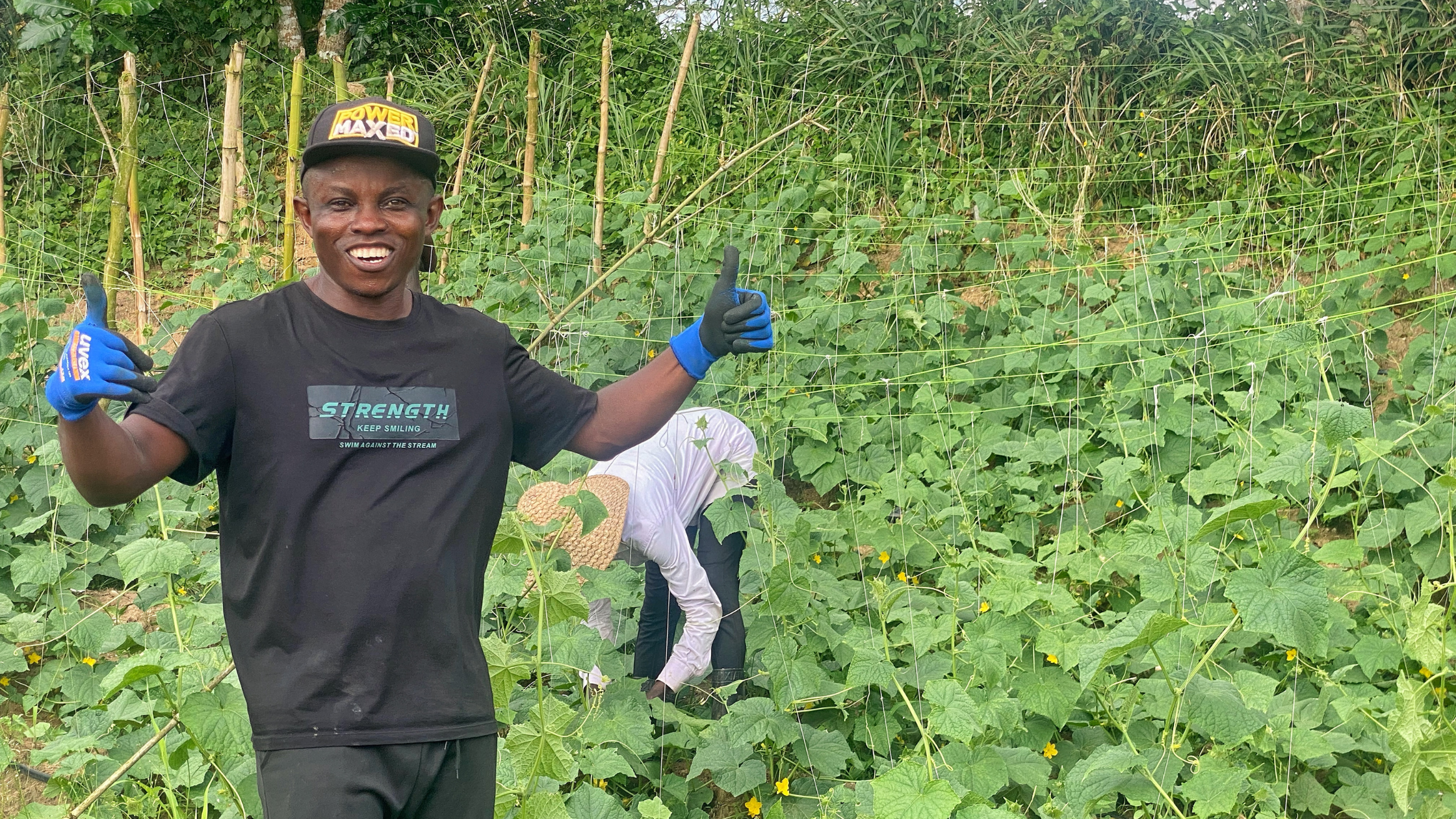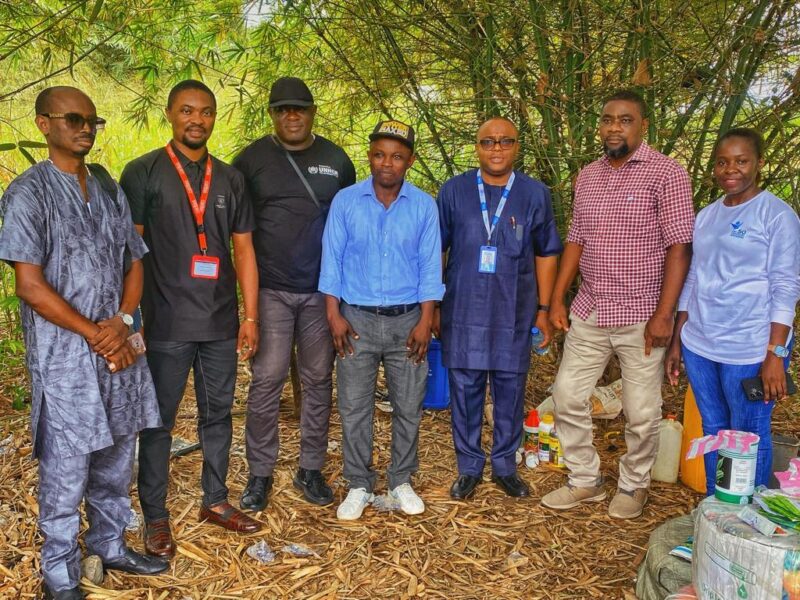Nigeria: Helping Cameroonian refugees develop crops and skills
Story

The ongoing conflict in Cameroon’s western region has caused thousands of people to flee their homes to seek safety, stability, and to start a new life in neighbouring Nigeria, including Albert Asu.
Albert grew up in Mamfe, a town in the South-West province of Cameroon, with his parents and five siblings.
“Mamfe holds many fond memories for me, as it’s where I attended primary and secondary school. I follow the Christian faith, specifically Catholicism. My upbringing was normal, with caring parents who did their best to provide education and healthcare. Despite the distance, I still feel my parents’ love through our phone calls,” he said.
Socially, Cameroon had a vibrant nightlife and weekends were filled with celebrations, said Albert. But as he grew older underlying tensions became more apparent and the prolonged and deadly conflict led to Albert and his family becoming refugees in Nigeria.
Since 2019, Cuso International’s Skills for Improvement of Lives and Livelihoods for Refugees (SKILLS) project is helping refugees regain their independence and live a dignified life with an improved standard of living. Partnering with the United Nations High Commission for Refugees (UNHCR), the project provides training and business starter packs to help refugees establish sustainable, self-reliant businesses or access employment.
“The UNHCR-Cuso International livelihood support project has been instrumental in providing safe integration for refugees who are displaced and uncertain about the future in their host country. The project has been a beacon of hope, enabling Cameroonian refugees in Nigeria to establish small businesses, acquire new skills, and support their families,” said Albert.
 Albert, a certified chartered accountant with an M.Sc. in professional accountancy, first got involved with the program because it gave him the opportunity to serve the refugee community. He also wanted to gain a better understanding of what he might encounter while working in Nigeria.
Albert, a certified chartered accountant with an M.Sc. in professional accountancy, first got involved with the program because it gave him the opportunity to serve the refugee community. He also wanted to gain a better understanding of what he might encounter while working in Nigeria.
“As a Cuso International community volunteer, I gained valuable insights from the management of the livelihood project. Witnessing community members running small businesses around town brought me immense joy,” he said.
With a growing concern for food insecurity Albert ventured into the agricultural sector, using regenerative agriculture to ensure that his own livelihood needs are met. With Now, a farm in Calabar, Cross River State, Albert practices regenerative agriculture using organic manure, pesticides, and herbicides. He cultivates tomatoes, cucumbers, watermelons, okra, and Cameroon pepper.
So far, he’s hired six refugees and some nationals that support him as casual labour while also earning a living. Albert is excited at the prospects the farm holds and wants to partner with other refugees, sharing knowledge and transferring skills, such as sales and marketing.
A pumping machine and irrigation channels throughout the farm allow the workers to cultivate crops year-round. A sustainable marketing strategy will enhance collaboration and partnerships using sales representatives at various outlets to facilitate access to the crops.
In the future, he wants to integrate various investment plans for interested partners and individuals as a way of generating funds for the farm and supporting farm expansion.
“My aspirations for the future include making a significant impact in promoting green agriculture and contributing to food security, so individuals in the refugee community won’t have to spend all their earnings just to afford food.”
Albert said he is grateful for Cuso International and those who support the work being done by the organization.
Help support more migrants and refugees by donating today.